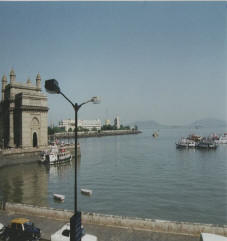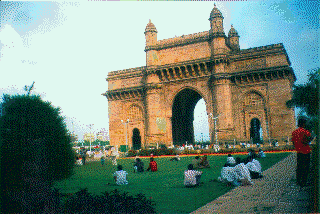|
||||||
|
General Information
Visa and Special Permits
Tourist visas are issued either for one month or for six months. In case of the former, entry into India has to be within one month from the date of issue. This visa is not available by post. The latter is issued for six months from the date of issue. Fees for both categories are the same, so it is advisable for tourists planning to visit neighbouring countries to ask for the latter. It is preferable for tourists to apply for visa in the country of their residence.
Tourist visas can be extended by three months at the foreigners' registration office in New Delhi, Mumbai, Calcutta and Madras, or with the Superintendent of Police at any District Headquarters. Four passport size photographs are needed for obtaining a visa.
If stay in the country exceeds 180 days, then tourists are required to get a tax clearance certificate, available at the foreigners' section of the income tax department in every major city. It is also advisable to keep bank receipts to show that the money has been changed legally. |
|
||
|
Special permits may be required additionally with the visa to visit certain areas of the country. Areas such as parts of Sikkim and the north-east frontier states, and northeast of Himachal Pradesh near the Tibetan border are out of bounds for foreign nationals. In case you need to visit any of these areas, apply for a permit at least four weeks in advance at the Ministry of Home Affairs Foreigners' Section , Lok Nayak Bhavan, Khan Market, New Delhi 110 003.
Basic Safety
Never leave an unlocked suitcase in a hotel room. Never leave suitcases unattended on airports or train stations. Women traveling alone should never get into a taxi or rickshaw if there's a second man accompanying the driver. Women should also chain lock their door when they are in their hotel room. Everyone should be alert in crowds for pickpockets. Wear a money belt. One should be careful while using his or her credit cards.
Business Hours
Delhi observes numerous national and religious holidays, in such cases the commercial places are closed. Most government and private banks are open weekdays 10:00 AM - 2:00 PM and on Saturdays 10:00 AM - 12:00 Noon, they are closed on government holidays. The international airport and some luxury hotels have 24-hour money-changing facilities. The major offices of American Express that offer check-cashing facilities also have extended hours. Western-style hotels will also change money for their guests. Post offices are open Monday-Friday 10:00 AM - 5:00 PM,Saturdays from 10:00 AM - 2:00 PM and are closed on government holidays and Sundays. Most museums are closed on Mondays and site museums (near archaeological monuments) are normally closed on Fridays. Museums are also closed on government holidays. Business hours of market places, shops, bazaars vary from place to place.
Vaccinations and Health
Foreign tourists should be in possession of their Yellow Fever Vaccination Certificate conforming to International Health Regulations, if they are originating or transitting through Africa or South America. The validity of this certificate is for a period of 10 years.
No other vaccination certificate is needed, but for personal protection, inoculation is recommended for cholera, typhoid, malaria and hepatitis.
Shopping and tipping
Tipping is virtually unknown in India, except in swanky establishments in the major cities. In tourist restaurants or hotels a 10% service charge is often added to bills. In smaller places, where tipping is optional, you need only tip a few rupees, not a percentage of your bill. Most major hotels include a service charge of 10%. Waiters, room service boys, housekeepers, porters, and doormen all expect to be tipped. Railroad porters should be paid Rs. 5 - Rs. 10 per bag, depending on the weight. Set the rate before you let him take your bags. Taxi drivers don't expect tips unless they go through a great deal of trouble to get to your destination, but if you hire a car with a driver, tip him about Rs.50-Rs. 100 per day, depending on the distance travelled. If you hire a local guide, tip him or her Rs. 40 for four hours, Rs. 80 for a full day.
Judicial System
The Supreme Court is the apex court in the country. The High Court stands at the head of the state's judicial administration. Each state is divided into judicial districts presided over by a district and sessions judge, who is the highest judicial authority in a district. Below him, there are courts of civil jurisdiction, known in different states as munsifs, sub-judges, civil judges and the like. Similarly, criminal judiciary comprises chief judicial magistrate and judicial magistrates of first and second class. Supreme Court The Supreme Court has original, appellate and advisory jurisdiction. Its exclusive original jurisdiction extends to all disputes between the Union and one or more states or between two or more states. The Constitution gives an extensive original jurisdiction to the Supreme Court to enforce Fundamental Rights.
The Supreme Court of India
Appellate jurisdiction of the Supreme Court can be invoked by a certificate of the High Court concerned or by special leave granted by the Supreme Court in respect of any judgement, decree or final order of a High Court in cases both civil and criminal, involving substantial questions of law as to the interpretation of the constitution. The President may consult the Supreme Court on any question of fact or law of public importance.
The Supreme Court of India comprises of the Chief Justice and not more than 25 other Judges appointed by the President. Judges hold office till 65 years of age.
High Courts
There are 18 High Courts in the country, three having jurisdiction over more than one state. Bombay High Court has the jurisdiction over Maharashtra, Goa, Dadra and Nagar Haveli and Daman and Diu. Guwahati High Court, which was earlier known as Assam High Court, has the jurisdiction over Assam, Manipur, Meghalaya, Nagaland, Tripura, Mizoram and Arunachal Pradesh. Punjab and Haryana High Court has the jurisdiction over Punjab, Haryana and Chandigarh. Among the Union Territories, Delhi alone has had a High Court of its own. The other six Union Territories come under jurisdiction of different state High Courts.
The Chief Justice of a High Court is appointed by the President in consultation with the Chief Justice of India and the Governor of the state. Each High Court has powers of superintendence over all courts within its jurisdiction. High Court judges retire at the age of 62.
The jurisdiction as well as the laws administered by a High Court can be altered both by the Union and State Legislatures. Certain High Courts, like those at Bombay, Calcutta and Madras, have original and appellate jurisdictions. Under the original jurisdiction suits, where the subject matter is valued at Rs.25,000 or more, can be filed directly in the High Court. Most High Courts have only appellate jurisdiction.
Both Parliament and the State Legislatures have the power to legislate in items appearing in List III of the Constitution which is known as "Concurrent List''. This list includes items like electricity, newspapers, criminal law, marriage and divorce, stamp duties, trade unions, price controls, etc.
Wild Life
The natural wealth of the Indian subcontinent has remained unique, mysterious and fascinating for nature lovers. In Indian philosophy, life in any form is deemed sacred and it is advocated that compassion for all living creatures is essential. The worship of nature in all its different forms is an essential part of our cultural legacy. The tree has held a vital place in religious tradition, symbolising the myth of creation. The Agni Purana reveals that the conservation rite becomes a soul-saving deed and that trees are objects of respect. The rich and fascinating variety of India's wildlife can be seen in the 80 national parks, 440 sanctuaries and 23 tiger reserves established by the Government of India in an attempt to conserve this vital resource. More than 500 species of mammals, 1, 220 species of birds, 1, 600 species of reptiles and amphibians, and 57, 000 species of insects populate the subcontinent. India harbours 60% of the world's wild tiger population, 50% of Asian elephants, 80% of the one-horned rhinoceros and the entire remaining population of the Asiatic lion.
|
|||


